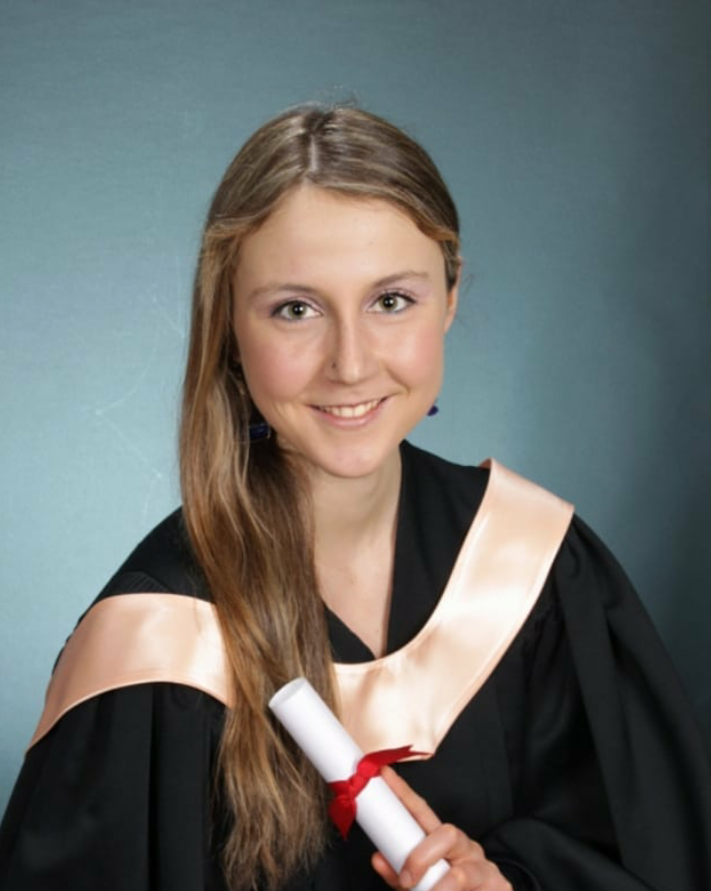
Breault is part of the 2019 class of occupational therapy graduates that will cross the stage for convocation on June 4, 2019. (Photo supplied.)
Why did you choose to study occupational therapy?
I always knew I wanted a career that focused on helping people. I learned about occupational therapy when I worked as an assistant coach for track and field for the Special Olympics and as head coach for FUNdamentals (a Special Olympics program for children ages 7-12 to learn fundamental sports skills) from 2013-2016, and was later hired as an occupational therapy assistant for a child who was enrolled in the FUNdamentals program. Through my experience as an occupational therapy assistant for children with autism spectrum disorder, I recognized the significance and value of occupational therapy in supporting people with mental and/or physical disabilities to live a healthy and meaningful life. I also appreciated the holistic nature of occupational therapy, as it addresses the whole person (physical, emotional, mental and spiritual) as a unique individual, which is often not the case in the medical system.
Why did you choose the University of Alberta's Faculty of Rehabilitation Medicine?
I wanted to attend a university that was esteemed for its quality teaching and learning opportunities. I heard from some of my undergraduate professors that the U of A Faculty of Rehabilitation Medicine was a perfect choice for this. I was very grateful for the valuable and unique learning opportunity of working with standardized patients to give us practical, hands-on-experience to prepare us for clinical placements and our eventual careers.
What is one of your fondest memories from your time in the program?
Two things stand out the most to me.
The friendships I have made: connecting with like-minded individuals who were intrinsically interested in supporting the health and well-being of individuals in need.
My placement in acute mental health services: I was assigned a very knowledgeable and supportive preceptor who inspired me to pursue a career as a mental health occupational therapist. I saw the tremendous potential of occupational therapists successfully supporting the recovery of individuals with mental health conditions.
"I believe learning doesn't stop upon university graduation-it is a lifetime journey and one I am excited to continue."
What did you do for your work placements?
In my first year, I was placed with the Adult Brain Injury Clinic at Glenrose Rehabilitation Hospital.
In my second year, I worked with acute general medicine at Nanaimo General Regional Hospital, acute mental health at Grey Nuns Hospital, and a mental health community placement at SAGE Safehouse for Seniors Escaping Abuse.
How are you going to celebrate your graduation?
I will celebrate accomplishing a challenge with accomplishing another challenge! I will be doing a four-day hiking trip at Silent Pass in Golden, BC with my boyfriend.
What are you doing now / going to do next?
I am currently working at a mental health clinic in Edmonton, specializing in return-to-work services. I work with adults 18 and above, with conditions such as post-traumatic stress disorder, addiction, depression, and generalized anxiety disorder. I have garnered training and experience in cognitive behavioral therapy, motivational interviewing, post-traumatic stress assessment and interventions, behavioral activation, and return-to-work assessments and interventions (including cognitive work hardening, creating gradual return-to-work plans, and recommending accommodations).
I plan to continue developing my therapeutic skills in this area. I will be attending a workshop in June to get certified in prolonged exposure therapy. I believe learning doesn't stop upon university graduation-it is a lifetime journey and one I am excited to continue.
What does the future hold for you? What are your long-term aspirations?
Career-wise, I hope to specialize in the area of post-traumatic stress disorder and contribute to the development of occupational therapy knowledge and practice base in this area. I am considering returning to school in the future and acquiring my Ph.D. in Rehabilitation Science to accomplish this.